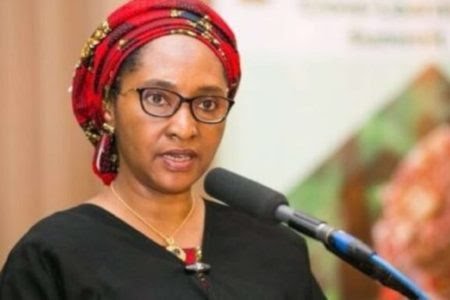Nigeria Requires $100bn To Fund SDGs – Finance Minister
The Minister of Finance, Budget and National Planning, Zainab Ahmed on Tuesday put the estimated cost of financing Nigeria’s Sustainable Development Goals (SDGs) at US$100 billion.
She disclosed this while declaring open the 52nd National Conference of the Institute of Chartered Accountants of Nigeria (ICAN) themed “Nigeria Adopting Sustainability for Economic Prosperity”, in Abuja.
The Minister explained that it was as a consequence that the National Development Plan (2021-2025) and associated strategies have been put in place to reflect emerging threats and opportunities and develop a clear path to reaching the nation’s goals and priorities.
Ahmed noted that the federal government “is firmly committed to the 2030 Agenda for sustainable development and the SDGs”, adding that “this commitment culminated in the recent launch of the Integrated National Financing Framework (INFF)”.
“The goal of INFF is to enhance revenue collection at the national and sub-national levels. To digitalize, optimize and make the tax system much more effective, better coordinate the budget processes, and make public spending much more effective”, she added.
The Minister listed some of the other Government Reforms and initiatives being undertaken to put Nigeria on a steady path of sustained growth to include, including strengthening and continued implementation of the Strategic Revenue Growth Initiatives to shore up Government revenues, reduce financing pressures, and expand the fiscal space.
According to her, other reforms include rationalizing expenditure by focusing on priority spending on growth-enhancing sectors of the economy; enhancing growth in non-oil Export through fiscal and trade incentives; improving and sustaining political and macroeconomic stability, as well as addressing security and infrastructural challenges, to attract Foreign Direct Investments (FDIs).
She also named the monitoring and tracking revenue from government-owned enterprises (GOEs) and developing a model for continuous improvement in activities as part of the government’s initiatives to drive the SDGs in the country, stressing that “the aim is to make these enterprises financially and commercially viable so that they will have no recourse to the government for funding”.
The Minister informed the Chartered accountants that a vital component of the sustainability agenda is financial sustainability.
“Nigeria is counting on your professional support to ensure economic sustainability becomes a national culture. The National Development Plan has advanced clear strategies to intensify the transition and drive toward financial sustainability. We must deepen the revenue base of the economy through broader and strategic diversification.
“The recent Environmental Social Governance (ESG) regulations by the Securities and Exchange Commission to catalyze, Corporate and sub-national bond issuance is also of note. Although, the total issuance size of both Federal, State, and Corporates is relatively small, given the global appetite and increasing awareness around sustainability, we believe there will be more traction.
“Combating wastage and mismanagement is a crucial component of financial sustainability, and the accounting profession does have a sacred responsibility in this regard. Sustainability reporting is becoming a growing reporting area in today’s business world.
“The growing momentum toward increased organizational disclosure of environmental, social, and governance information has made more companies see the need to report on their ESG operations. Governments and regulators also have increased interest in sustainability reporting, given the demand for disclosure of ESG information from investors and the public.
“The Institute’s public interest mandate should embolden chartered accountants to lead the innovations around sustainability and sustainability reporting. Accountants noted for their strong ethical foundations, robust qualifications framework, and extensive skills and experience in generating and assuring decision-useful information are best placed to deliver on this emerging need”, she stated.
The Minister then challenged ICAN to fashion and deploy practical tools that will deter the rising wave of professional abuse, unethical conduct, and jettisoning of established standards, adding that t” the Institute must take the driver’s seat in promoting the very essence of our gathering here today”.



Comments are closed.